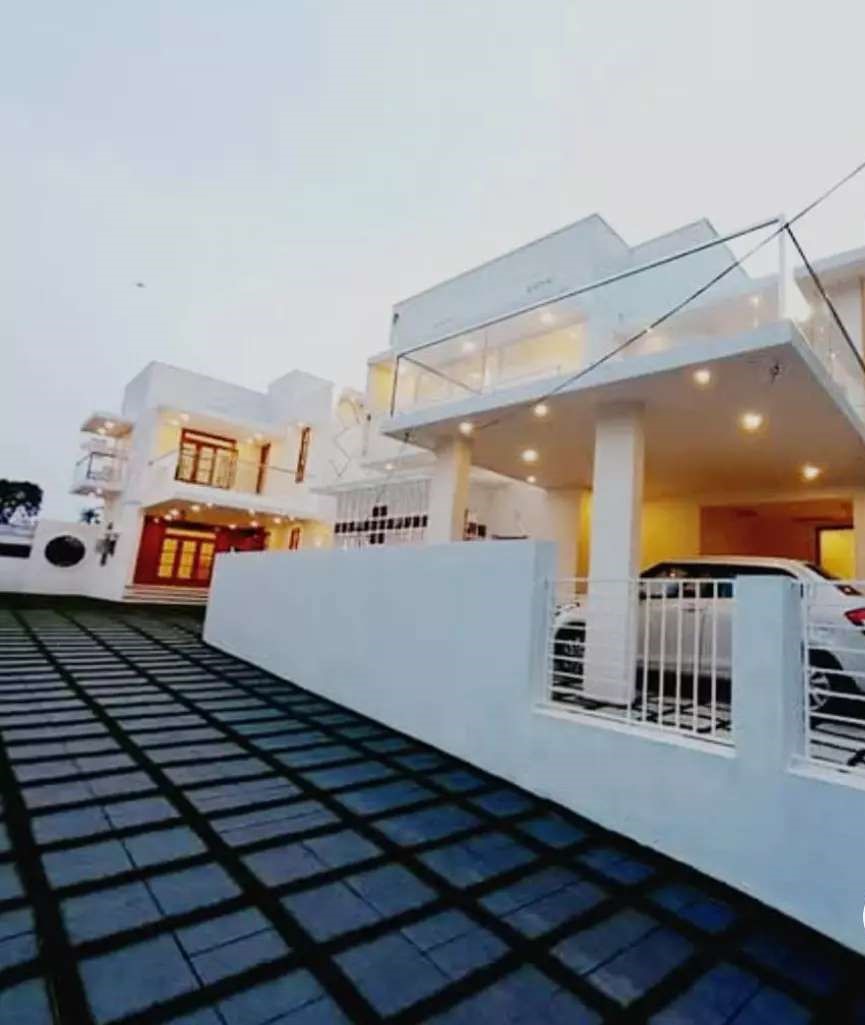A gated community is a residential area with controlled entrances and exits, often surrounded by walls or fences, offering residents a secure, private living environment. These neighborhoods are typically equipped with 24/7 security, CCTV surveillance, and manned gates, making them exclusive compared to regular residential areas. While some gated communities cater to luxury seekers with sprawling villas and resort-style amenities, others provide more modest apartments and townhouses in a protected setup. The core idea, however, remains the same: safety, exclusivity, and a sense of community.
The concept of gating residential areas isn’t entirely new , it’s been around in various forms for centuries. Historically, royals and elites built gated fortresses to protect themselves from intrusions. In the modern world, the same principle has evolved into residential living for those who prioritize security and peace.
Evolution and Popularity of Gated Communities
popularity of gated communities has skyrocketed, especially in urban and suburban regions. Factors like rising crime rates, increasing pollution, overcrowded neighborhoods, and the desire for better community management have driven this trend. Real estate developers are also pushing this model aggressively, recognizing the market’s appetite for more controlled, upscale environments.
Gated communities now serve different market segments ranging from high-end villas to mid-income apartments offering variations of the same secure lifestyle. They’re especially popular among families with children, retirees looking for peace, and even expats seeking a structured neighborhood culture. And in countries like India, the U.S., and the UAE, this living arrangement has become a real estate staple.
Reasons People Choose Gated Communities
Security and Safety
Perhaps the biggest draw to living in a gated community is security. In a world where safety is increasingly uncertain, a gated setup offers peace of mind like few others. Security personnel are stationed at entry and exit points, ensuring that only authorized individuals are allowed inside. Whether you’re a working professional worried about leaving your home unattended or a parent concerned about your child playing outside, the sense of security in a gated community is hard to match.
Controlled Access and Surveillance
Every vehicle and visitor entering the premises is logged and tracked. Some communities go as far as using digital visitor management systems and ANPR (Automatic Number Plate Recognition) to ensure complete transparency. CCTV cameras are installed at strategic points—be it the entrance gate, corridors, elevators, or parks—monitoring movements around the clock. This reduces the chances of theft, trespassing, or other forms of criminal activity significantly.
Emergency Response Efficiency
Living in a gated community can also mean faster emergency response. Many have in-house security teams trained to handle medical emergencies, fire hazards, or even minor civil disturbances before calling the authorities. Additionally, emergency services like ambulances or police are often familiar with the layout and protocols of these communities, allowing for quicker interventions.

Advantages of Living in a Gated Community
Summary of Key Benefits
Here’s a quick roundup of why gated communities continue to attract homebuyers:
| Advantage | Details |
| Security | Controlled access, 24/7 surveillance, and patrolling guards. |
| Peaceful Environment | No through-traffic, less noise, and cleaner surroundings. |
| Amenities | Access to gym, pool, parks, sports courts, and event halls. |
| Community Living | Like-minded neighbors and structured social setups. |
| Better Maintenance | Regular upkeep of common areas, gardens, and facilities. |
| Property Value | Generally sees higher appreciation compared to non-gated properties. |
| Emergency Readiness | On-site assistance, quick response teams, and reliable infrastructure. |
Conclusion
So, is it worth buying in a gated community? The answer isn’t black and white—it depends entirely on what you’re looking for in a home. If security, order, and a premium lifestyle are your top priorities, gated communities check all the boxes. You get a peaceful environment, modern amenities, and a sense of social cohesion that’s hard to find in traditional neighborhoods.
But with that comes a cost—both financial and personal. From high maintenance fees to potential restrictions on lifestyle choices, there are trade-offs that not everyone may be willing to accept.
At the end of the day, it’s about finding the right fit. Take your time, visit a few communities, talk to residents, and understand the pros and cons. Buying a home is a big step—and whether gated or not, it should match your values, needs, and long-term goals.
FAQs
1. Are gated communities safer than regular neighborhoods?
Yes, in most cases. Gated communities have round-the-clock security, restricted access, and surveillance systems, which significantly reduce the chances of theft or intrusion compared to open neighborhoods.
2. Do gated communities always increase property value?
While they tend to appreciate faster due to security and maintenance, not all gated properties guarantee high ROI. Location, developer reputation, and community upkeep also play crucial roles.
3. Can non-residents enter a gated community?
Yes, but usually with permission. Most communities require visitor approval via the security gate or digital entry systems, ensuring only authorized individuals gain access.
4. Is the cost of living in a gated community higher?
Typically, yes. While the base property price may be competitive, monthly maintenance fees, clubhouse charges, and special levies can add up.
5. Are gated communities better for families with kids?
Absolutely. With safer roads, playgrounds, and a controlled environment, gated communities are a preferred choice for families with young children.
Thanks
vijaykumar
(Learn more within the community )
